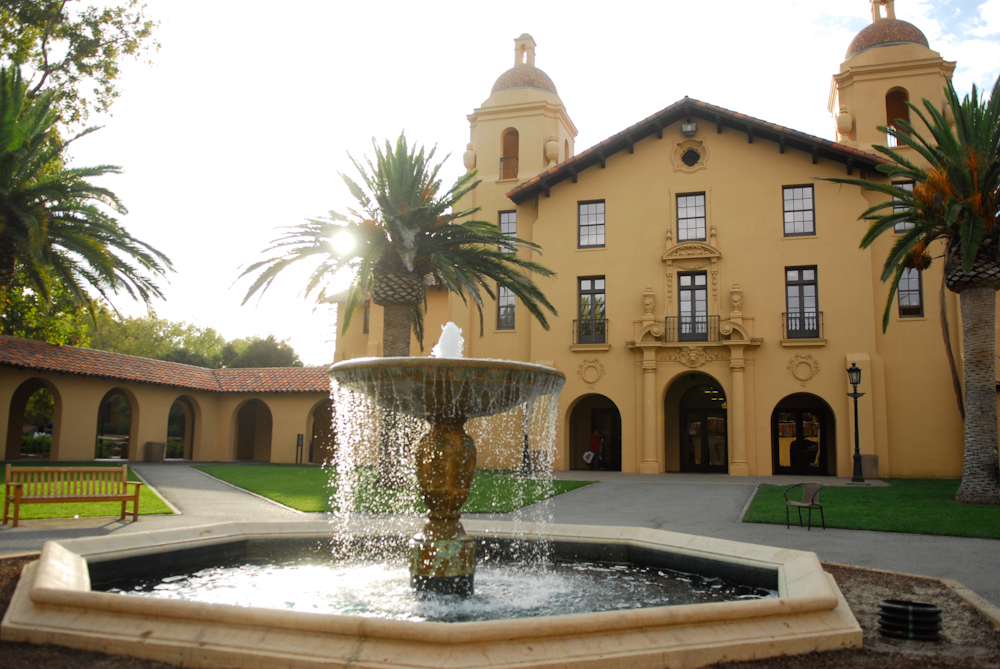On Oct. 2, the Associated Students of Stanford University (ASSU) reintroduced the goals for its cabinet positions this year, with one of the positions being the newly created ASSU Director of Academic Freedom. Among the position’s stated goals is to work with University administration to ensure free exchange of ideas while making sure speakers invited by student groups uphold the Honor Code and Fundamental Standard.
The position, currently occupied by fifth-year graduate student Zintis Inde, will participate in the newly established Working Group on Funding Policies and work to “identify potential threats to student research, such as changes to federal funding of studies and fellowships that focus on controversial topics,” according to the ASSU website.
Inde will also be working closely with the Office of Community Standards (OCS) and administrators including Vice Provost of Student Affairs Susie Brubaker-Cole and Associate Dean and Director of Student Activities and Leadership (SAL) Nanci Howe.
The creation of this new cabinet position in the ASSU comes on the heels of recent debates over free speech sparked by controversial on-campus speakers. In the past year, Jihad Watch director Robert Spencer and Turning Point USA representatives Charlie Kirk and Candace Owens visited Stanford. Last year’s Cardinal Conversations initiative, launched by President Marc Tessier-Lavigne and Provost Persis Drell with the intent of encouraging a diverse exchange of ideas in intellectual discourse, also stirred campus debate, particularly with the invitation of political scientist Charles Murray.
“We’re hoping to work in a proactive way to examine and refine free speech policies on campus to reflect the current climate and our values as a community,” Inde wrote in an email to The Daily. “As a first step, this means I’ll be reaching out to VSOs [Voluntary Student Organizations] to hear from them about how University and ASSU policies affect their approaches to free speech and academic freedom.”
In an email to The Daily, ASSU President Shanta Katipamula ’19 wrote that the Director of Academic Freedom is an advocacy role, stating that the ASSU is not able to make policy decisions beyond their own internal policies.
Inde also wrote that he will avoid personally making any decisions or recommendations about specific speakers or events.
“Instead, what we’d like to be able to do is proactively establish policies and guidelines that can be applied fairly by the Undergrad Senate and GSC [Graduate Student Council] to all groups applying for funding and ensure a healthy culture of free speech on campus.”
Criticisms of the new position
Ahead of Robert Spencer’s visit last November, University President Marc Tessier-Lavigne and Provost Persis Drell released a statement on Notes from the Quad about free speech and inclusion on campus. In the post, they reiterated the University’s Statement on Academic Freedom as well as the University’s commitment to encouraging free speech, both in the form of speakers allowed on campus and protests against those speakers.
“When organizations within our community genuinely want to hear an outside speaker, we support their efforts as long as University policies are followed,” the post stated. “We also firmly support the rights of all members of the University community to protest peacefully against opinions with which they disagree.”
Stanford College Republicans (SCR) member Michael Whittaker ’20 referenced the controversy over the funding of the Spencer and TPUSA events, both organized by SCR, as the reason for a “crackdown on a resurgent and revitalized student Right, who caught the progressive power structure flat-footed last year.”
In response to claims that the ASSU may now have the ability to stop the funding of certain events, Katipamula said that the position does not have to power to prevent any speaker from coming to campus.
“The ASSU cannot limit a student group’s access to funds based on the content of their speech — that has been the view of the last several ASSU leadership groups, and its one that we share.”
Whittaker specifically referred to the Director of Academic Freedom position as a “countermeasure” meant to restrict freedom of speech and prevent conservative student groups on campus from inviting controversial speakers to speak on campus.
“Thinly veiled behind the newspeak is the true goal,” Whittaker wrote in an email to The Daily, “to defund and obstruct controversial speakers who offend the sensibilities of the pantheon of diversity.”
SCR Vice President Philip Eykamp ’20 stood in support of Whittaker, speaking on behalf of the organization.
“We find the position of ‘Director of Academic Freedom’ to be by its nature Orwellian,” he wrote in an email to The Daily. “Academic freedom should be a fairly simple issue of protecting free speech and discourse on college campuses, and thus the introduction of a regulatory position to cover the issue raises concerns for us about the potential inhibition of academic freedom inherent to this role.”
Katipamula told The Daily that the position was not directly created in response to any specific event or controversy.
“We felt that both the campus and national climate led to students wanting to more thoughtfully and meaningfully engage with these issues.” she wrote. “It was not created in response to any particular event, but rather a broader identified campus need.”
This article has been edited to reflect that the Executive Update reintroduced the goals for the ASSU cabinet positions, not the announcement of them. The Daily regrets this error.
Contact Elena Shao at eshao98 ‘at’ stanford.edu.
